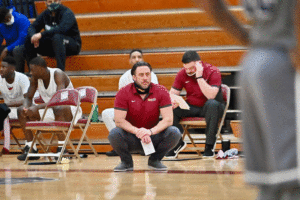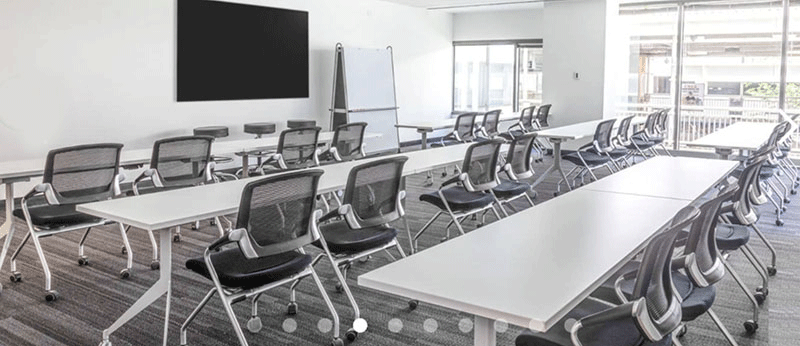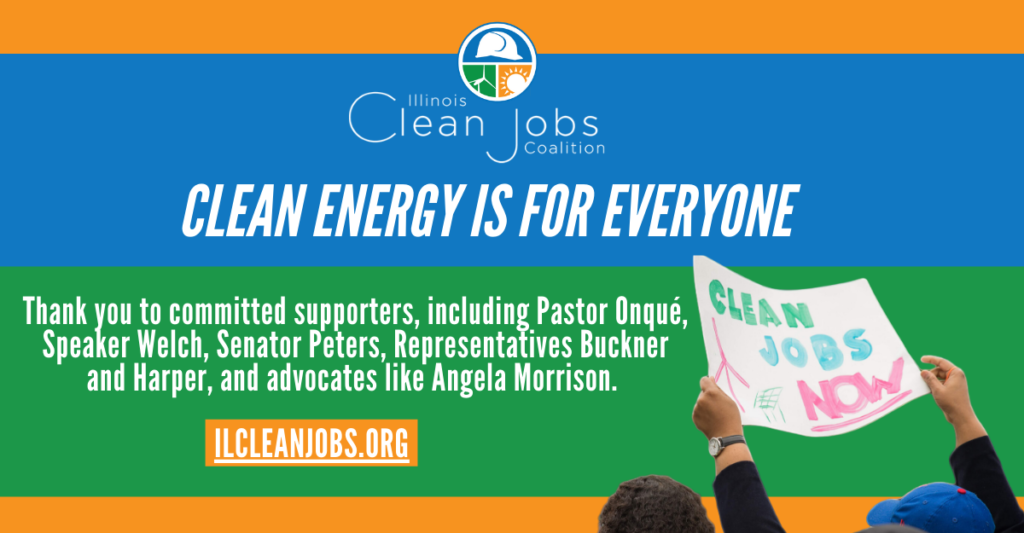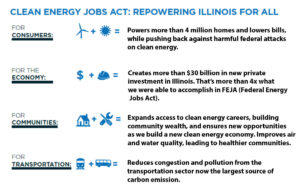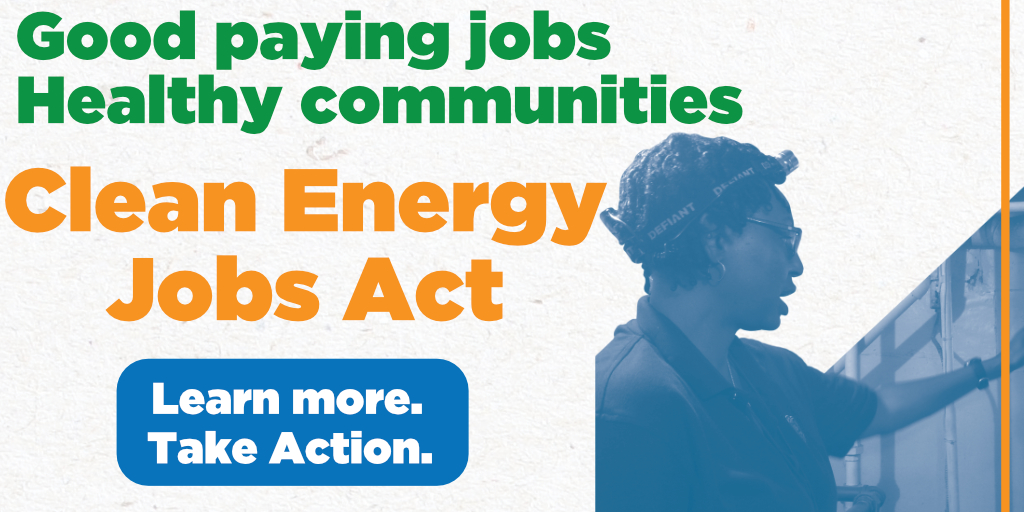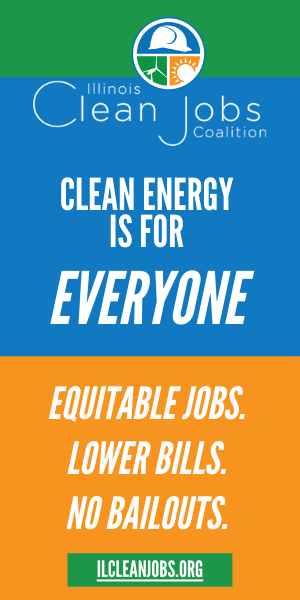
|
|
|||
 Black Contractors protesting at the central headquarters of CHA because of the dismantling of JOC program that provided business and job opportunities. 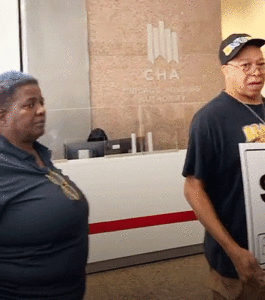 Ms Patricia Davis (left) protesting unfair dismantling of CHA’s JOC Program which benefited small Black Contractors. Black contractors, who were part of the Chicago Housing Authority (CHA)’s JOC (Job Order Contracting) Program, have not been able to work since November of 2020 because of the dismantling of the program by the CHA. Small black contractors and their employees came together to protest the loss last Wednesday, June 23rd at the CHA Central headquarters because of the drastic economic loss of livelihood and the impact of that loss. According to Patricia Davis, President of Unique Casework Installations, Inc., a contractor and also a certified union carpenter for over 20 years, they were under a contract that does not expire until September 2021. Another protest is planned on Thursday June 30 at city hall. The Federal Government began using JOC in the mid-1980’s as a delivery method for small to medium sized construction work. The purpose of Section 3 is to make HUD-financed employment and economic opportunities available to low-income residents, which includes CHA and low-income Chicago area residents. In June of 2018 NLCN ran a story on several small contractors who benefited from the program, Hood Construction Company owned by Dennis Hood a CHA resident and Community Section 3 Consulting, owned by Paul Mckinley, who successfully advocated for and participated in jobs and contracts for CHA residents. Unfortunately, Mr. Hood passed away in February of 2020. By Todd Thomas
Back in March of 2020 when the coronavirus pandemic shut down sports at many schools Triton College decided to stay the course and let the student athletes play. The start of the season was delayed, and schedules had to be modified, but the school put protocols in place and commenced with the basketball season. Trojans’ Head Coach Steve Christiansen answered a few questions about the 2021 season with NLCN. By Todd Thomas North Lawndale College Prep was on top of the Chicago-area basketball world between 2006-2009, winning a state and city championship in the process. The Phoenix weren’t stacked with star athletes, relying instead on a team of role players and unyielding defense. Point guard Zilijin Jones was the team captain and leader on the court for most of the run, and while the five-foot nine floor general didn’t put up eye-popping statistics, he was valued for his toughness, basketball IQ, and leadership skills. This package of skill and effort would earn him a college basketball scholarship, and eventually a successful career playing professionally around the world. “The United States is very isolated and closed-minded. People think America is the land of the free, but here is where you usually end up putting yourself in debt. People work a billion hours on a job to obtain a big house with a white picket fence and a nice car. But what I learned is that you can get the same things in other countries for a lot cheaper without going into so much debt,” Jones said. “You have to be professional. A lot of Americans show up overseas and lose sight of why they’re there. You can’t just go clubbing every weekend. You have to remember that they signed you up to come over there to play basketball not to come experience their country. And if you’re not performing, they will send you home,” Jones said. North Lawndale College Prep has built a solid reputation as a school that prepares it’s student for life after high school, and Jones said that his involvement in extracurricular activities there helped him succeed. “Outside of basketball at NLCP I was sent to a lot of Phoenix Rising programs that had me interact with different ethnicities and studying different religions and cultures. Every summer I went to programs out of state and that gave me a broader and better outlook on life, and I was ready to adapt to college,” he said. Jones credits former NLCP head coach Lewis Thorpe, as well as mentor Lauren Foster, for helping him develop his skill and mentality on the basketball court. Jones currently lives in Florida as he awaits the return to normalcy on the basketball circuit once the COVID-19 pandemic finally subsides. He isn’t interested in being overseas with the pandemic still raging, and many basketball leagues in other countries are playing without foreigners now. Jones grew up on the west side of Chicago, not far from the NLCP Christiana campus, and recalls a lot of crime and gun violence that still plagues the community today. It’s been several years since he called Chicago home, and he said he doesn’t miss the trouble he’s seen on the streets of North Lawndale. Another Phoenix standout basketball player, Jonathan Mills, was gunned down in 2016 in front of a store on Roosevelt Road in North Lawndale, and that tragic murder still weighs heavily on Jones, who was Mills’ cousin and whom he considered a brother. “Right now, my brother (Mills) being killed is something I’m still not over. I try to stay away from Chicago because there’s nothing but bad memories for me. I’m in an area in Florida now where my car door is unlocked, and my keys are in the dash. I don’t have to worry and that’s what life is about – none of this craziness. It’s much more relaxing and pleasant here and overseas without living with your head on a swivel because you don’t know what’s coming next, Jones said.
FBRK Impact House, pronounced (fab*rik) is a philanthropy hub tailored and designed to serve and support the philanthropic community by providing a place where granting organizations can work together, share ideas and resources, and operate with greater efficiency. It was the vision of former Chicago Bears defensive lineman Israel Idonije. FBRK Impact House opened its doors just before the pandemic shutdown on March 1, 2020 which was the official grand opening with the following organizations signed on as long-term tenants: Forefront; Woods Fund of Chicago; The Field Foundation of Illinois, Inc.; United States Artists, Inc.; A Better Chicago; Chicago Public Library Foundation; Pillars; Children First Fund; Knight Family Foundation; The Academy Group; Gupta Foundation (Avani Narang); Public Good Partners; Enrich Chicago. The following entities are Access Members (Utilizing Work Lounges and Open Space): Baum Foundation; Comerstone Foundation; Comer Family Foundation; Verizon; Healthy Communities Foundation; and Crown Foundation. Last year, because of the coronavirus pandemic, Impact leaders within Impact House community responded with over $50 million in COVID-19 relief funds. Also developed was the Mapping COVID-19 Recovery project which standardizes data through a series of maps that illustrate where public, private and philanthropic sector investments are going in BIPOC (Black, Indigenous, and People of Color) communities devastated by the COVID-19 pandemic. The map can be accessed through the FBRK website listed at the end of this article. FBRK Impact House has another initiative. TRECC, the Technology Renewable Energy Command Center, a full-service mecca for entrepreneurs, businesses, and innovators building in the following industries: Renewable Energy, Technology, Finances, E- Commerce, Arts, Entertainment, and Lifestyle. It will facilitate communities in developing resiliency to climate and economic changes, while building a technologically innovative workforce. TRECC will weave together workspace, education, mentorship, workforce development, dining, entertainment, hospitality, and wellness to serve small businesses, entrepreneurs in every community TRECC abodes. FBRK Impact House and TRECC are currently seeking State support from the governor and the state legislature. To leverage government support with public and private support to help achieve the goals outlined in their plans. A resolution has been sponsored by State Rep LaShawn K. Ford, 8th District and State Senator Rep. Emil Jones III, 14th District. It is currently up for hearing in the House Economic Opportunity & Equity Committee, where Representative Nicholas K. Smith (D) 34th District is the Chairperson, on May 19, 2021 at 3:00PM and it is in the Assignments Committee of the Senate Chamber, where State Senator Kimberly A. Lightfoot, 4th District is the Chairperson. Details of the resolution from State Rep Ford on the State website can be located at https://www.ilga.gov/legislation, then search under Resolutions for HR0263. For more information on the FBRK Impact House and TRECC, go to their website at https://www.thefbrk.com/. You can also contact State Senator Jones and State Rep Ford for more information on the state level support. By Zaki Amir Imagine Chicago, burning coal as its only source of electricity and then you realize that it is not the most efficient technology nor the healthiest. According to the U.S. Energy Information Administration as of 2019, about 4,118 billion kilowatt-hours (kWh) of electricity were generated at electricity generation facilities in the United States. About 63% of this electricity generation was from fossil fuels, coal-23.5%, natural gas-38.4%, petroleum-0.5%, and other gases-0.3%. About 20% was generation from nuclear energy. About 17.5% was generation from renewable energy sources, hydro-6.6%, wind-7.3%, biomass-1.4%, and solar-1.8%. Non-renewable resources are also known as finite resources because they are natural resources that cannot be easily replaced by natural means fast enough to keep up with consumption. The term fossil fuels refer to coal, petroleum, and natural gas that are transformed from its original organic matter through heat and pressure becoming oil or gas. Ground water in certain aquifers which only mean a layer of permeable rock, sand, or gravel through which ground water flows, containing enough water to supply wells and springs can be used to produce energy too. Renewable energy comes from the sun, wind, biomass and geothermal energies and is based on the use of panels utilizing the sun, fans using the wind, and water used to power mechanisms that create hydropower, or tidal power in the use of the sea and wave power with radiant energy from geothermal heat used to create geothermal power. These are generally considered infinite and cannot be depleted. Wave energy on the coastline could provide 1/5 of the world demand and hydroelectric power could supply 1/3 of the total energy needs for the planet. Geothermal energy could give 1.5 more times the energy needed and wind power could give 30 times over the needs of human consumption with solar at this time providing 0.1% of the demand for energy to the planet. If used properly, solar power could yield 4,000 times the power needed by 2050. The Clean Energy Jobs Act is legislation to create Clean Job Workforce Hubs which are a network of organizations looking to provide support to disadvantaged and minority communities. Support in this context is also about renewable energy jobs that are much needed. Sponsored by Sen. Scott Bennett, D-Champaign, and Rep. Carol Ammons, D-Urbana the bill is supported by the Champaign-Urbana Mass Transit District and the Prairie Rivers Network a state affiliate of the National Wildlife Federation aims to dramatically cut carbon emissions by making Illinois 100 percent renewable by 2050 through the installation of more than 40 million solar panels and 2,500 wind turbines in the coming decades. Rep. Carol Ammons said, “We’re trying to tie the job training programs to the actual industry and get people working,” and continued by saying, “We also want to make sure that this bill has the ability to make it affordable for people who live in low-income communities and seniors.” The 365-page bill known as the Clean Energy Jobs Act or as (CEJA) creates long-term answers to our public health and economic challenges as a response to the Covid virus that has disproportionally affected Afro descendants and Latino citizens with higher death rates, more unemployment, and poorer air quality. It is created to achieve more equity in the placement administration and operation of coal-fired electric plants and strive towards environmental justice for all. The idea in a nutshell is to commit Illinois to 100% renewable energy by 2050 and moving away from inefficient unclean, dirty expensive energy of the past while providing employment for Illinoisans’ that shows reduction in pollution from gas and diesel vehicles as early as 2030 reflecting the understanding that the planet is in trouble due to climate change and a better way of providing energy has to come into reality. Sen. Scott Bennett, D-Champaign, said, “Given the current federal administration’s lack of leadership on growing clean energy economies, Illinois must create a path forward to ensure that both the jobs and economic benefits created by smarter energy and transportation come to our state,”
State Sen. Cristina Castro, D-Elgin, and Rep. Ann Williams, D-Chicago, introduced the Clean Jobs Act that came from the Illinois Clean Jobs Coalition, a network of environmental groups, healthcare professionals, businesses and has been received favorably by Gov. J.B. Pritzker and deserves serious attention from the electorate as a beneficial piece of legislation that will help save $2.6 billion in cumulative consumer savings over the next decade. |
|||






